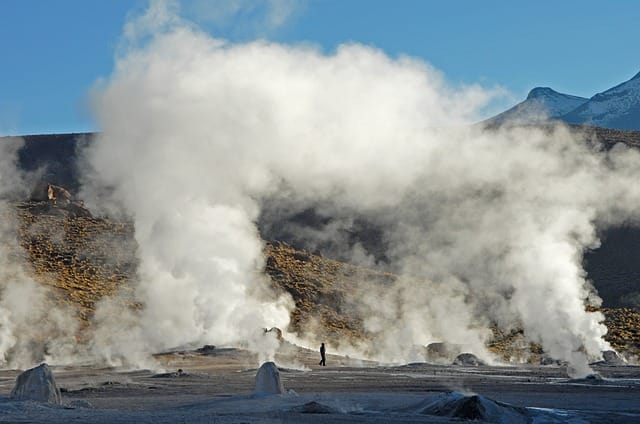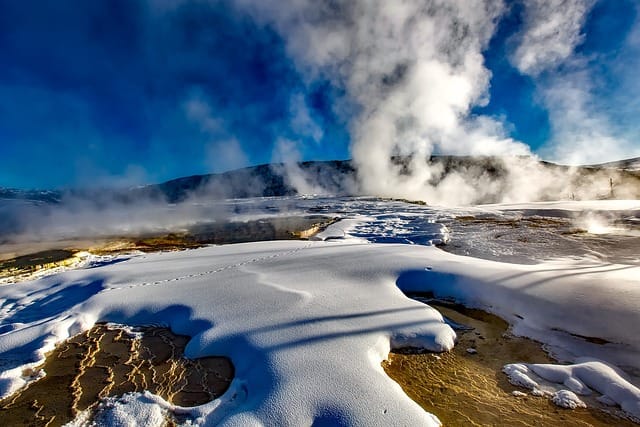The importance of the water cycle cannot be overstated. This natural cycle, also known as the hydrological cycle, is fundamental to sustaining life, maintaining ecosystems, and supporting essential natural processes across the globe. From the air we breathe to the food we eat, every element of life on Earth relies on the continuous movement of water through the environment. Through processes such as evaporation, condensation, precipitation, and infiltration, the water cycle regulates climate patterns, replenishes freshwater sources, and enables agricultural growth, which is vital for feeding populations worldwide.
The importance of the water cycle extends far beyond basic sustenance. It moderates temperature extremes, preventing conditions like desertification, and supports biodiversity by nourishing plants, animals, and microorganisms alike. This cycle supplies rivers, lakes, and underground aquifers, providing habitats and essential resources for countless species. In turn, this fosters interconnected ecosystems that rely on a balanced water flow to thrive, highlighting the critical role of the water cycle in promoting ecological health and stability.
Understanding the importance of the water cycle allows us to appreciate its effects on everything from weather patterns and soil health to water availability and ecological balance. By recognizing this, we see why protecting and conserving natural water resources is so crucial. The importance of the water cycle is clear, as it lies at the heart of environmental resilience and the sustainability of life on Earth. Preserving this vital cycle ensures that it continues to support our planet, making it possible for ecosystems and human communities to flourish for generations to come.
Understanding the Water Cycle
The water cycle, also known as the hydrological cycle, is the continuous movement of water on, above, and below the Earth’s surface. This natural process includes key stages: evaporation, condensation, precipitation, infiltration, and runoff. Each stage plays a significant role in distributing water throughout ecosystems, ensuring that life on Earth has access to this vital resource. Understanding the importance of the water cycle provides a foundation for appreciating how interconnected and dependent various life forms are on this process.
1. The Importance of the Water Cycle in Climate Regulation
One of the most critical functions of the water cycle is its role in climate regulation. Through processes like evaporation and condensation, water helps maintain temperature stability across the globe. When water evaporates from the Earth’s surface, it absorbs heat, cooling the environment. When it condenses in the atmosphere to form clouds, heat is released, warming the surroundings. This regulation of temperature is a crucial aspect of the importance of the water cycle, as it supports climate patterns and ensures habitable conditions.
2. Water Cycle and Freshwater Availability
Freshwater is a limited resource, and its availability is largely due to the importance of the water cycle. Through precipitation, water from oceans and other bodies is distributed across land, providing freshwater to rivers, lakes, and groundwater. This freshwater availability is essential for drinking water, agriculture, and industry. Without the water cycle, the distribution of fresh water would be uneven, and many areas would lack the resources needed for survival and development.
3. Importance of the Water Cycle for Plant Growth
Plants rely heavily on the importance of the water cycle to grow and thrive. Water from precipitation enters the soil, where it is absorbed by plant roots. This water is crucial for photosynthesis, the process through which plants convert sunlight into energy. Additionally, water helps transport nutrients from the soil to the plant, supporting growth and development. Without a consistent water cycle, plants would struggle to obtain the moisture they need, affecting food chains and biodiversity.
4. Supporting Biodiversity and Ecosystems
The importance of the water cycle extends to the health and diversity of ecosystems. By distributing water across different habitats, the water cycle supports various species of plants, animals, and microorganisms. Aquatic ecosystems like rivers, lakes, and wetlands rely on a steady water supply to sustain life. Even land-based ecosystems depend on rainfall patterns established by the water cycle. The cycle maintains habitats, supporting species diversity and ecological balance.
5. Importance of the Water Cycle to the Atmosphere
The importance of the water cycle is evident in its role in maintaining atmospheric conditions. Water vapor, a byproduct of evaporation, is a greenhouse gas that helps trap heat within the Earth’s atmosphere. This trapped heat is vital for maintaining a climate suitable for life. Furthermore, clouds formed during condensation reflect sunlight, regulating the amount of solar radiation that reaches the Earth’s surface.
6. Role in Soil Fertility and Agriculture
The importance of the water cycle in agriculture cannot be overlooked. Through precipitation, water nourishes the soil, replenishing moisture levels necessary for crop growth. Water also helps dissolve nutrients in the soil, making them accessible to plants. This process is essential for soil fertility, as it enables the growth of crops that are vital for food security. Agriculture worldwide is dependent on consistent rainfall and groundwater recharge provided by the water cycle.
7. Hydrological Cycle and Erosion Control
The importance of the water cycle is also seen in its role in controlling erosion. When water moves across the Earth’s surface, it transports sediment and reshapes the landscape. While excessive water flow can cause soil erosion, moderate levels help create fertile valleys and deltas, which are crucial for agriculture and habitat diversity. By balancing water distribution and controlling sediment flow, the water cycle plays an integral role in shaping ecosystems and supporting biodiversity.
8. Water Cycle’s Impact on Groundwater Replenishment
The importance of the water cycle is vital for replenishing groundwater reserves, which are crucial sources of drinking water for humans and wildlife alike. Through infiltration, rainwater seeps into the soil, eventually reaching underground aquifers. These aquifers store water for long periods, providing a stable source of fresh water during dry spells. Groundwater replenishment is essential for areas that lack surface water resources, underscoring the critical nature of the water cycle.
9. Importance of the Water Cycle in Waste Removal
Another overlooked importance of the water cycle is its role in waste removal. Rivers, streams, and rainfall help carry pollutants and waste away from urban areas and ecosystems. This process is essential for maintaining water quality and preventing the accumulation of contaminants in one place. As water flows, it naturally dilutes pollutants, helping ecosystems remain balanced and promoting environmental health.
10. Importance of the Water Cycle for Human Health and Welfare
The importance of the water cycle for human health cannot be overstated. By regulating temperature, providing drinking water, and supporting agriculture, the water cycle has a direct impact on human welfare. It ensures that communities have access to clean, safe water, which is essential for preventing diseases and maintaining public health. Furthermore, the cycle plays a role in air quality, as precipitation removes dust and pollutants from the atmosphere, leading to cleaner air.
Importance of the Water Cycle in Ecosystem Balance
The importance of the water cycle in maintaining ecosystem balance is critical. Beyond simply providing water, the cycle supports complex relationships within ecosystems. By ensuring that water continuously moves through evaporation, condensation, precipitation, and infiltration, the water cycle enables processes that sustain life. Plants depend on rainfall for photosynthesis, which in turn provides food for herbivores and produces oxygen. Every organism relies on this balance sustained by the importance of the water cycle.
This natural flow also transports essential nutrients through soil and water, supporting biodiversity and creating suitable habitats for countless species. The importance of the water cycle can also be seen in how it helps ecosystems adapt to changing conditions. This adaptability, fostered by the water cycle, reinforces biodiversity by promoting coexistence and resilience, allowing ecosystems to recover from environmental changes and stress.
Human Impact on the Water Cycle
Despite the clear importance of the water cycle, human activities disrupt this delicate balance. Deforestation, pollution, and urbanization interfere with water availability and quality. For example, trees play a crucial role in absorbing groundwater and releasing it through transpiration. The importance of the water cycle diminishes when trees are removed, leading to decreased rainfall and drier soils, which can negatively impact agriculture and natural habitats.
Pollution from industrial runoff and untreated waste contaminates rivers and oceans, affecting the water cycle’s function. Polluted water eventually evaporates, introducing contaminants into precipitation, potentially harming ecosystems. Urbanization contributes further by covering large areas with impermeable surfaces, increasing runoff and reducing groundwater recharge. These disruptions undermine the importance of the water cycle, as it fails to naturally replenish water sources.
Awareness of human impacts on the importance of the water cycle underscores the need for conservation. Protecting forests, minimizing chemical runoff, and using sustainable practices can maintain the water cycle’s integrity, ensuring it continues to support both ecosystems and human needs. Green infrastructure, such as permeable pavements and rain gardens, also helps cities manage water sustainably. Protecting the importance of the water cycle is essential for a resilient planet, as this process sustains biodiversity, ecosystem health, and water resources essential for all life.
Conclusion: The Invaluable Importance of the Water Cycle
In summary, the importance of the water cycle extends to nearly every aspect of life on Earth. It regulates climate, supports agriculture, maintains biodiversity, and ensures water availability. The cycle’s role in ecosystem health and human welfare cannot be ignored, as it connects natural processes in ways that are essential for survival. Recognizing and protecting the importance of the water cycle is crucial, as its continuity supports both nature and humanity.






